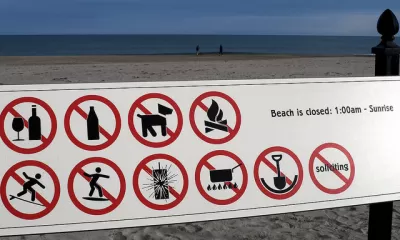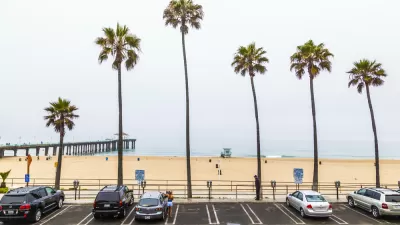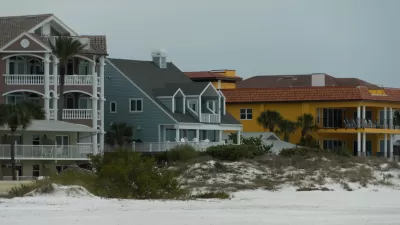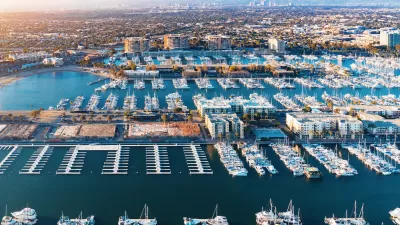Communities and municipalities have deployed a surprisingly creative menu of policies to increase or restrict access to beaches. The Public trust doctrine, it turns out, is in the eye of the beach-holder.

Tobias Armborst, Daniel D’Oca, Georgeen Theodore, and Riley Gold share an excerpt from their new book The Arsenal of Inclusion & Exclusion for Next City.
The book "examines some of the policies, practices and physical artifacts that have been used in the United States by planners, policymakers, developers, real estate brokers, community activists, and others to draw, erase or redraw the lines that divide," the authors write.
The excerpt focuses on a particularly scarce and coveted geographic resource, the beach, listing six "legitimate and illegitimate ways in which homeowners, municipal governments, and others restrict and expand access" to the beach.
Among the methods of exclusion listed are beach tags, like used in some communities in New Jersey and Connecticut, "Fire Zones" that restrict parking near beaches in New York, and fake garages that require curb cuts that minimize parking availability in Malibu.
FULL STORY: Six “Weapons” Cities Use to Keep You off (or on) the Beach

Planetizen Federal Action Tracker
A weekly monitor of how Trump’s orders and actions are impacting planners and planning in America.

Maui's Vacation Rental Debate Turns Ugly
Verbal attacks, misinformation campaigns and fistfights plague a high-stakes debate to convert thousands of vacation rentals into long-term housing.

San Francisco Suspends Traffic Calming Amidst Record Deaths
Citing “a challenging fiscal landscape,” the city will cease the program on the heels of 42 traffic deaths, including 24 pedestrians.

Defunct Pittsburgh Power Plant to Become Residential Tower
A decommissioned steam heat plant will be redeveloped into almost 100 affordable housing units.

Trump Prompts Restructuring of Transportation Research Board in “Unprecedented Overreach”
The TRB has eliminated more than half of its committees including those focused on climate, equity, and cities.

Amtrak Rolls Out New Orleans to Alabama “Mardi Gras” Train
The new service will operate morning and evening departures between Mobile and New Orleans.
Urban Design for Planners 1: Software Tools
This six-course series explores essential urban design concepts using open source software and equips planners with the tools they need to participate fully in the urban design process.
Planning for Universal Design
Learn the tools for implementing Universal Design in planning regulations.
Heyer Gruel & Associates PA
JM Goldson LLC
Custer County Colorado
City of Camden Redevelopment Agency
City of Astoria
Transportation Research & Education Center (TREC) at Portland State University
Jefferson Parish Government
Camden Redevelopment Agency
City of Claremont





























